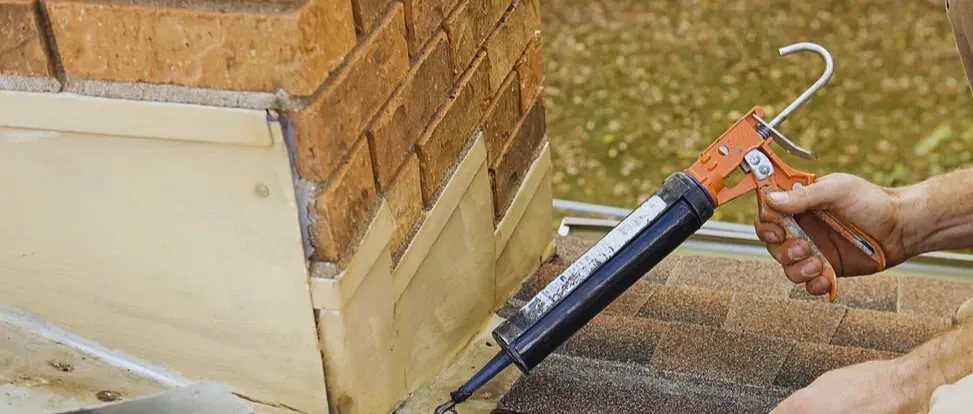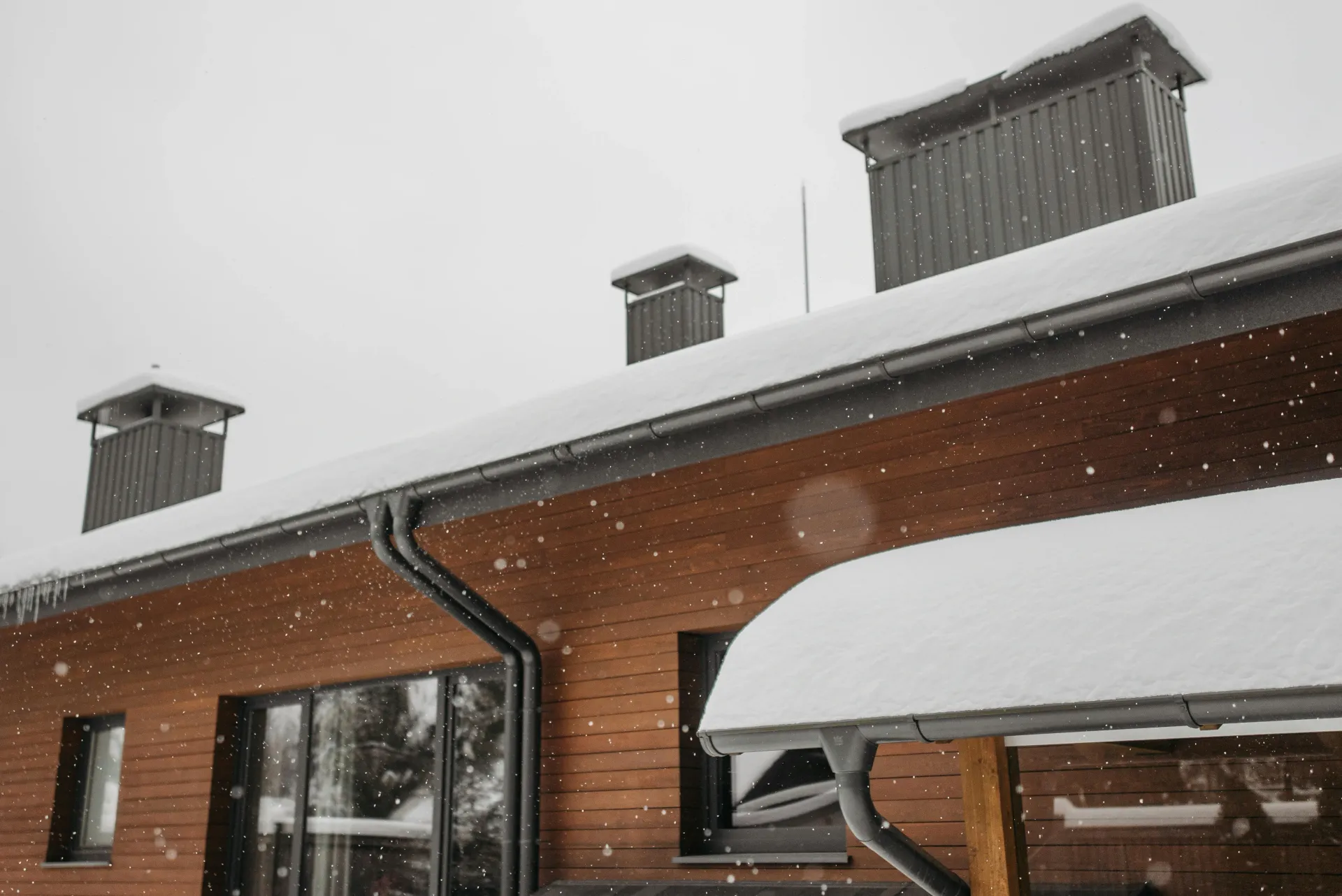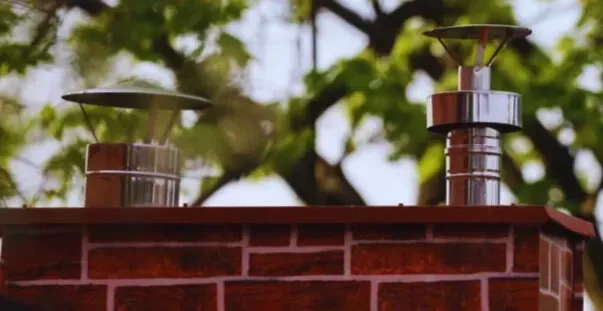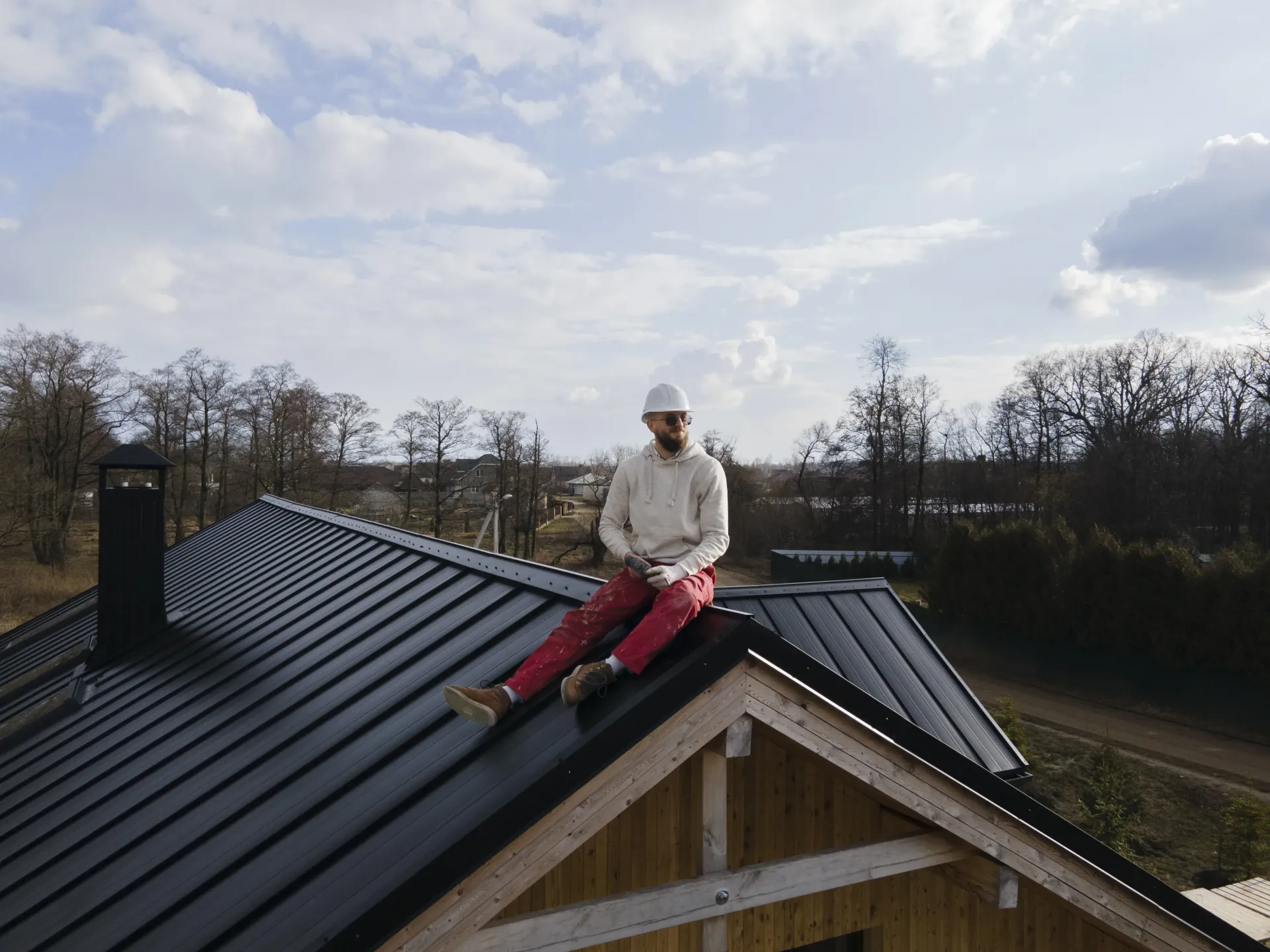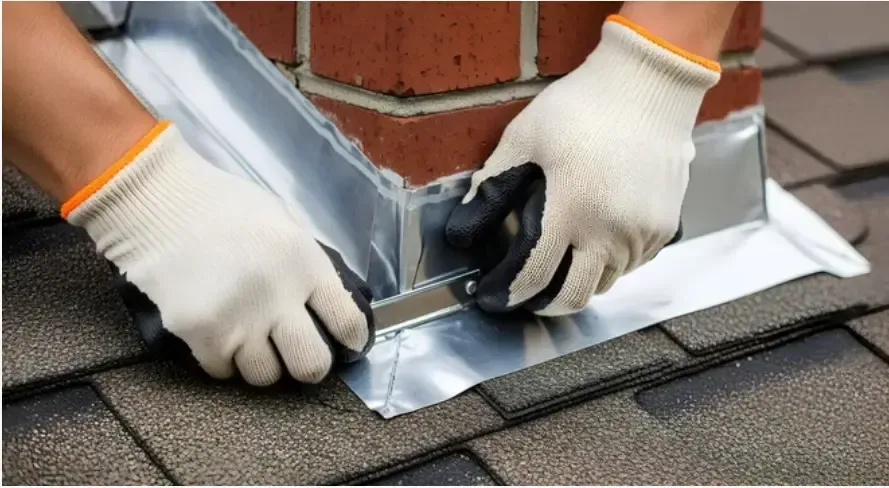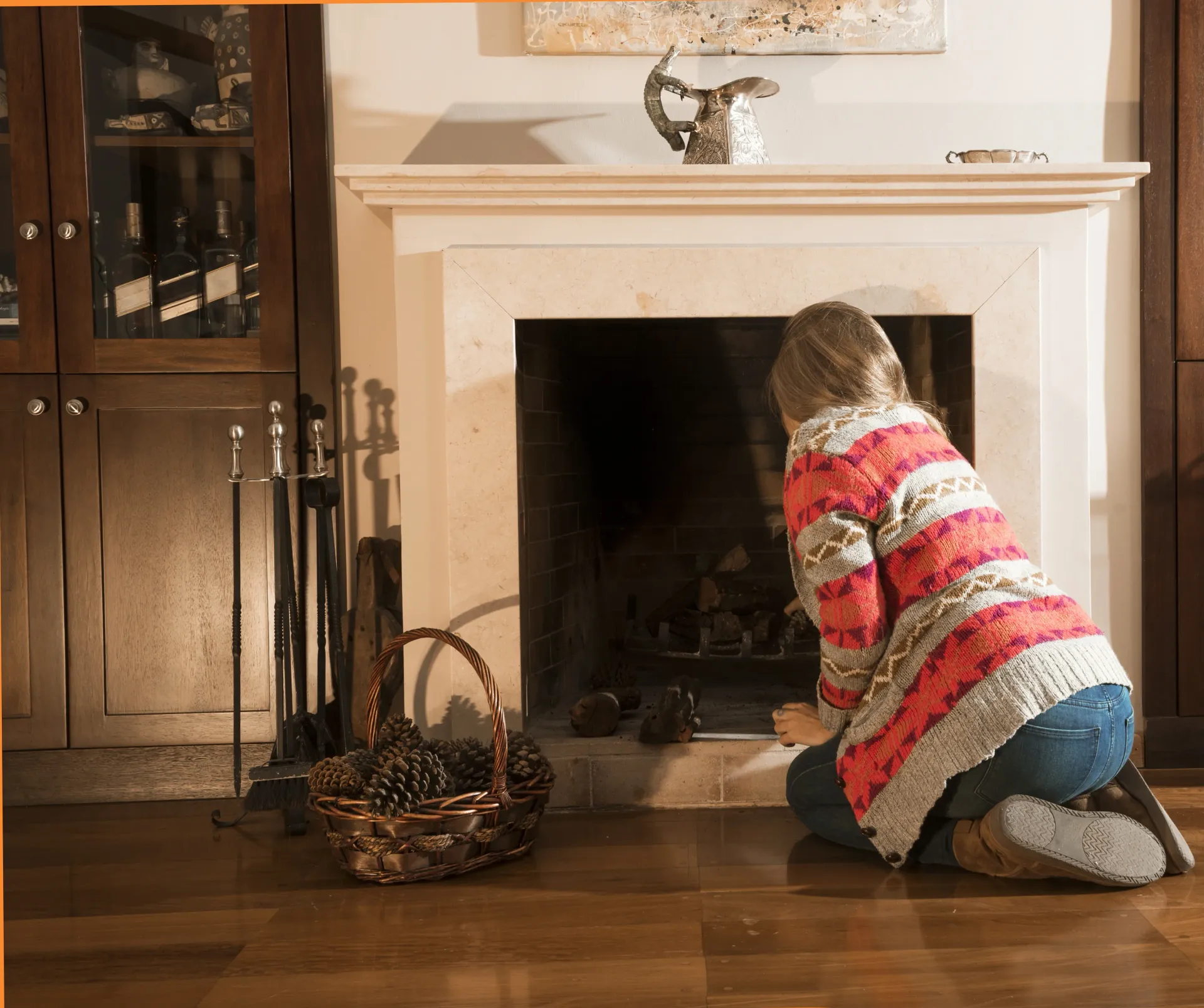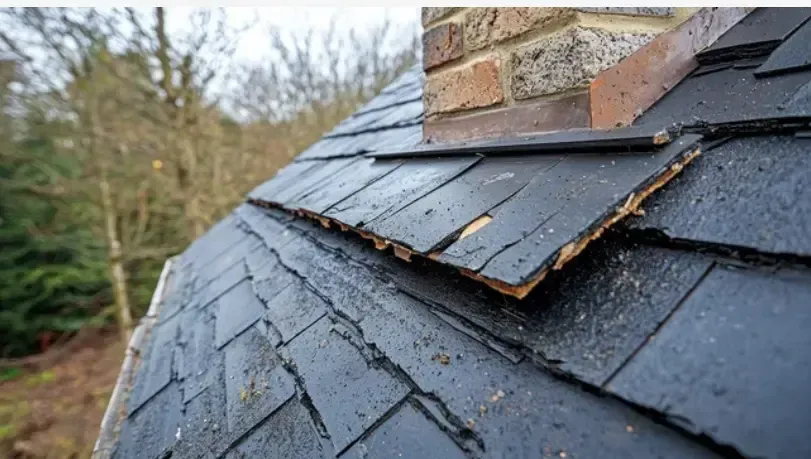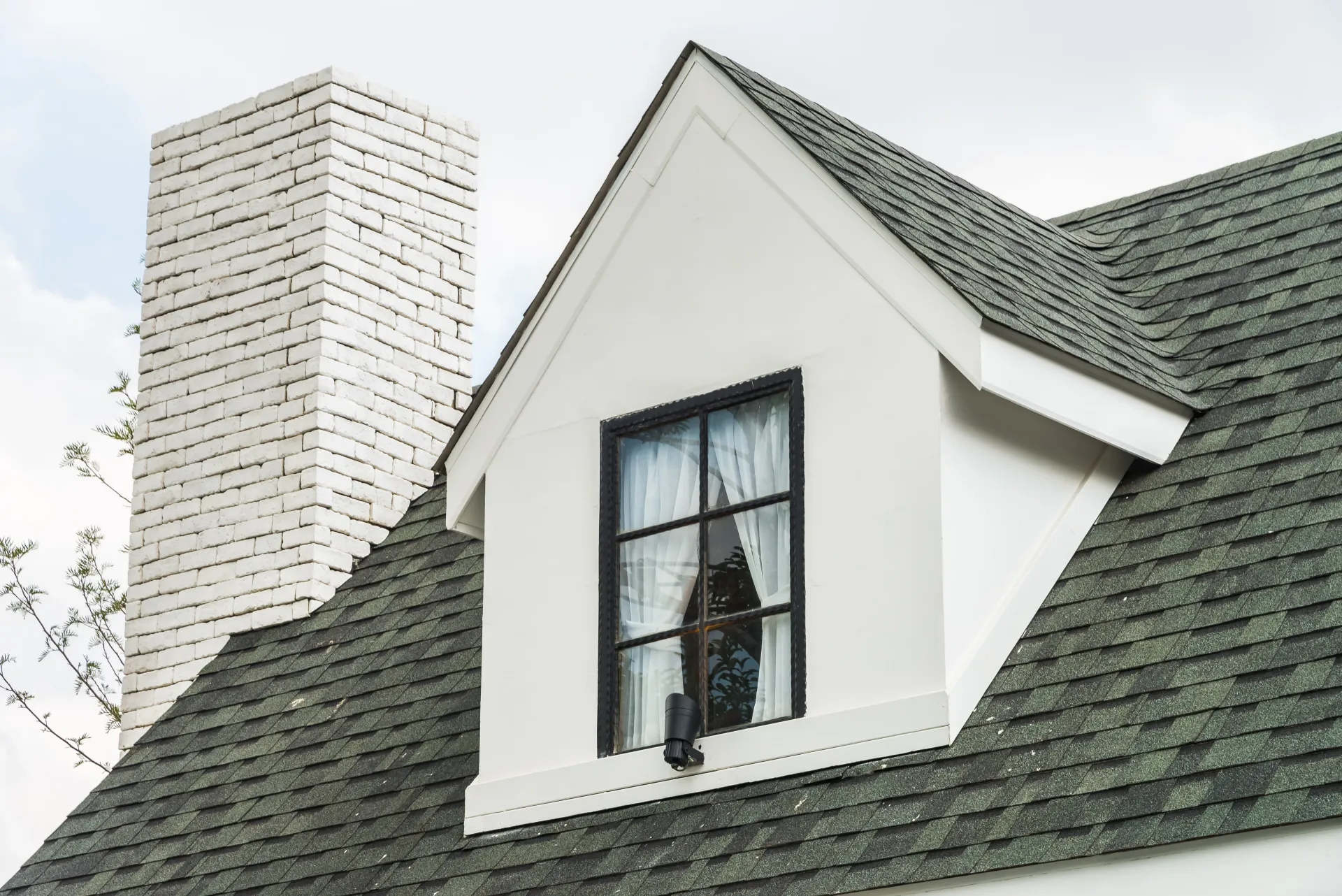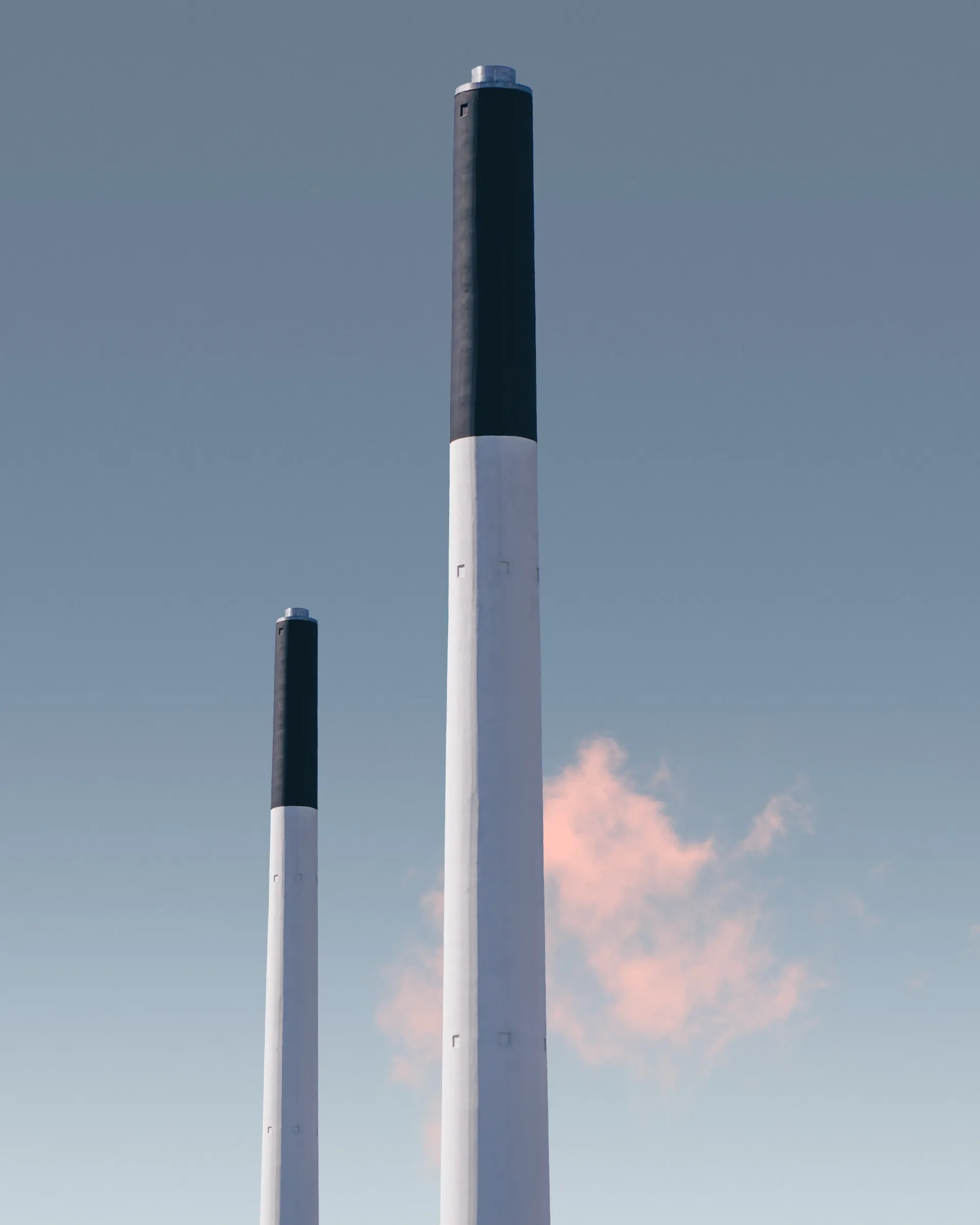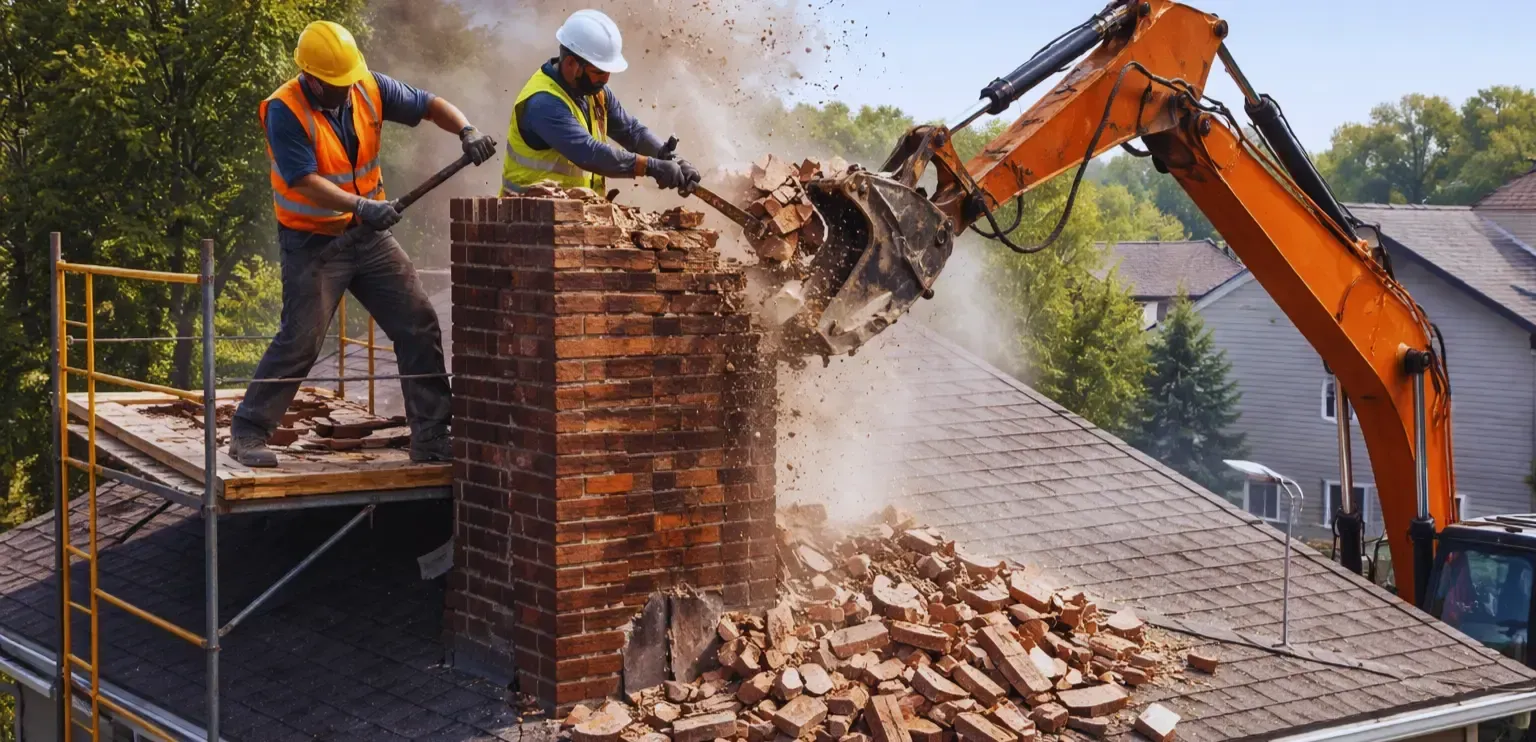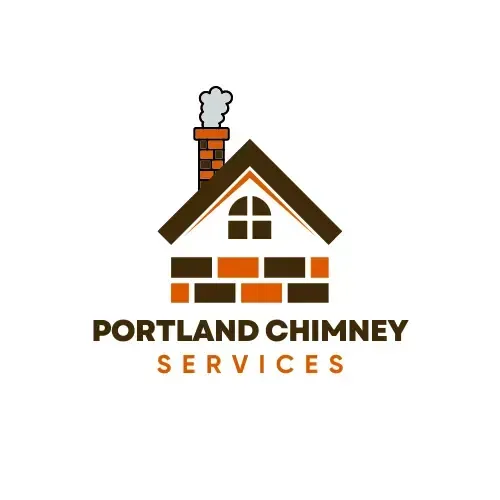As someone who's lived through many cold Portland winters, I've come to appreciate the importance of a well-maintained chimney. Over the years, I've learned (sometimes the hard way) that proper chimney care isn't just about keeping your home warm—it's about keeping it safe and structurally sound. In this guide, I'll share everything I've discovered about chimney maintenance, from waterproofing to Steel liners, and the tuckpointing techniques that have saved my historic Portland home.
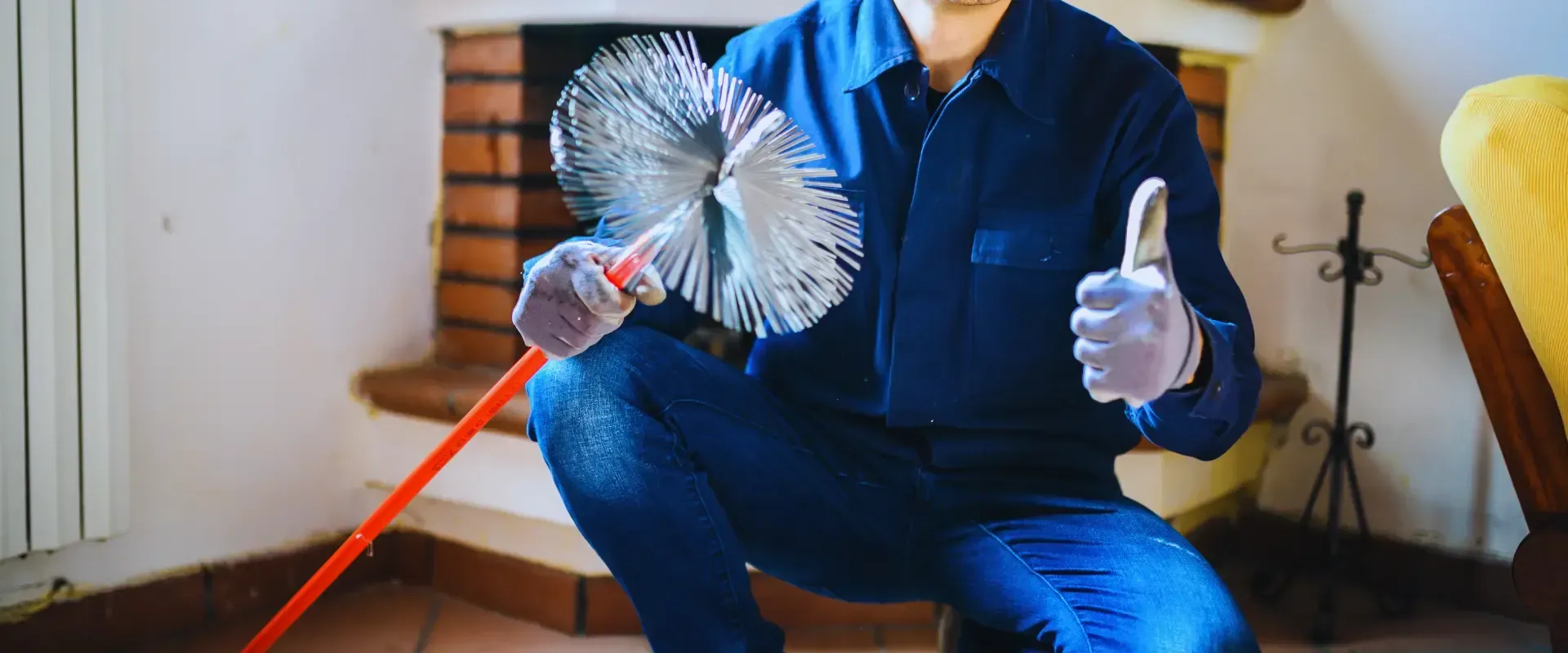
My Personal Journey with Chimney Maintenance
The Winter That Taught Me a Valuable Lesson
I'll never forget the winter of 2018. As snow piled up outside, my family gathered around what should have been a cozy fireplace—only to be met with billowing smoke and a house that smelled like a campfire gone wrong. That night, huddled in blankets with the windows open (in February, no less!), I promised myself I'd never neglect my chimney again.
Why I Never Skip My Annual Chimney Inspection
Since that smoky disaster, I've become almost religious about my yearly chimney maintenance. Each spring, I schedule an inspection with my trusted local service (Portland Chimney Service). What I've found is that this simple routine saves me money and stress in the long run. Small issues caught early rarely become expensive emergencies.
Understanding Your Chimney's Needs
The Basic Anatomy of a Chimney
Before diving into maintenance, it helps to understand what we're working with. A chimney isn't just a simple brick tube—it's an integrated system with multiple components:
- The flue: The pathway that carries smoke and gases out of your home
- The chimney cap: Keeps out rain, animals, and debris
- The crown: The top surface that protects the masonry
- The damper: Controls airflow and keeps out cold air when not in use
- The firebox: Where you build your fire
- The liner: Protects the chimney structure from heat and corrosion
Common Problems I've Seen in Portland Homes
Weather-Related Damage in Maine
Living in Portland means our chimneys face harsh weather conditions. The freeze-thaw cycles we experience can cause:
- Cracked mortar joints
- Spalling bricks (when the surface flakes off)
- Damaged chimney crowns
- Water penetration leading to interior damage
I've seen these issues in homes across every Portland neighborhood, from Munjoy Hill to Deering.
Wildlife Issues and How to Prevent Them
Maine's wildlife loves finding warm, sheltered spaces—especially in winter. I once had a family of raccoons take up residence in my chimney! Since then, I've learned that a quality chimney cap is worth every penny. It prevents:
- Birds nesting
- Squirrels and raccoons making homes
- Leaves and debris blocking your flue
- Embers escaping during a fire
Essential Chimney Waterproofing Techniques
Why I Recommend Waterproofing in Portland's Climate
With our coastal location and abundant rainfall, waterproofing isn't optional in Portland—it's necessary. I've found that proper chimney waterproofing:
- Prevents costly water damage
- Extends the life of your masonry
- Reduces efflorescence (that white powdery substance on bricks)
- Prevents mold and interior wall damage
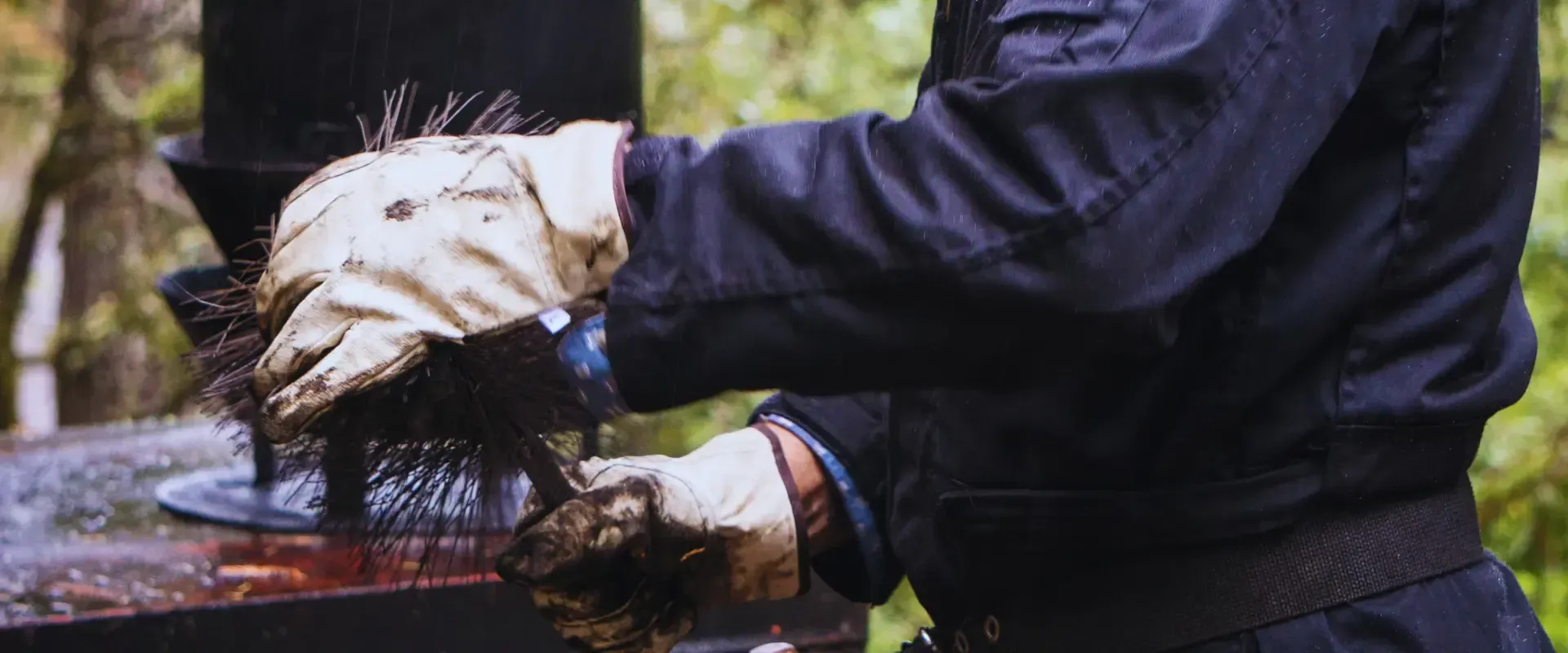
DIY vs. Professional Waterproofing: My Experience
While I'm a fan of DIY projects, chimney waterproofing is one area where I've learned to trust the pros. When I tried to waterproof my own chimney, I made the mistake of using the wrong product, which trapped moisture inside the bricks and made the problem worse.
Products I've Found Effective
The professionals at Portland Chimney Service use vapor-permeable sealants that allow the masonry to breathe while repelling water. These silicon-based products typically last 5-10 years and provide excellent protection against our coastal weather.
The Waterproofing Process Explained
A proper waterproofing job involves:
- Thorough cleaning of all masonry surfaces
- Repair of any damaged mortar joints or bricks
- Application of the waterproof sealant with specialized equipment
- Treatment of the crown and other vulnerable areas
"I never realized how important waterproofing was until I saw water stains on my ceiling. Now I make sure my chimney gets treated every 5-7 years. It's been worth every penny." - My neighbor on the Eastern Promenade
Everything You Need to Know About Stainless Steel Liners
Why I Upgraded to a Stainless Steel Liner
After noticing some deterioration in my old clay liner, I researched my options and decided on stainless steel. Here's why:
- It's highly durable (most come with lifetime warranties)
- It improves draft and efficiency
- It adapts well to our temperature fluctuations
- It's safer for preventing house fires
- It can actually increase home value
Signs Your Chimney Liner Needs Replacement
Watch for these warning signs:
- Flakes of tile or clay in your firebox
- White staining on exterior masonry
- Smoky smells in your home
- Poor draft or difficulty starting fires
- Deteriorating mortar between bricks
The Installation Process: What to Expect
When I had my stainless steel liner installed, the process took about a day and involved:
- Inspection with a camera to assess existing conditions
- Removal of the damper and any obstructions
- Insertion of the flexible stainless steel liner
- Securing and sealing at top and bottom
- Installation of a new chimney cap
- Final inspection and testing
Maintenance Tips for Long-Lasting Liners
To get the most from your stainless steel liner:
- Schedule regular cleanings to remove creosote
- Burn only seasoned hardwood
- Keep your chimney cap in good repair
- Have any unusual sounds or draft issues checked promptly
Chimney Demolition and Tuckpointing: When and Why
How I Knew My Chimney Needed Repair
My 1920s Portland home showed clear signs of needing tuckpointing:
- Mortar that crumbled when I touched it
- Visible gaps between bricks
- Leaning or tilting of the chimney structure
- Water damage on interior walls near the chimney
The Art of Tuckpointing: Preserving Your Chimney's Integrity
Tuckpointing is a specialized masonry technique that:
- Replaces deteriorated mortar with fresh material
- Maintains the structural integrity of your chimney
- Prevents water infiltration
- Preserves historic look and character
- Avoids the cost of complete rebuilding
Repair Type When It's Needed Average Cost in Portland Typical Lifespan Tuckpointing Every 20-25 years$500-$2,50025+ years Partial Rebuilding Severe damage to upper chimney$1,000-$3,50050+ years Complete Demolition & Rebuilding Structural failure$4,000-$10,000100+ years Crown Repair Cracked or damaged crown$200-$80015-20 years
Finding the Right Professional in Portland
I've learned that chimney tuckpointing requires specialized skills. When searching for a professional:
- Look for masons with specific chimney experience
- Ask for before/after photos of similar projects
- Check for proper insurance and licenses
- Read reviews from other Portland homeowners
- Make sure they understand historic properties (if applicable)
Cost Considerations and Planning
In my experience, tuckpointing is far more economical than waiting until a full rebuild is needed. I budget for:
- Regular inspections ($100-$200)
- Minor repairs as needed
- Major tuckpointing every 20-25 years
- Saving a small amount annually for eventual larger repairs
Seasonal Maintenance Checklist
My Spring Chimney Care Routine
Once the heating season ends, I always:
- Schedule my annual inspection
- Clean out any remaining ash
- Close the damper to prevent animals from entering
- Check the exterior for winter damage
- Plan any necessary repairs during warm months
Preparing Your Chimney for Maine Winters
Before the first fire of the season, I make sure to:
- Have a professional cleaning to remove creosote
- Check that my carbon monoxide detectors are working
- Ensure the chimney cap is secure and undamaged
- Stock up on seasoned hardwood
- Clear any debris from the roof around the chimney
Post-Winter Inspection Tips
After a harsh winter, I pay special attention to:
- The chimney crown for any new cracks
- Mortar joints that may have suffered from freeze-thaw cycles
- The flashing where the chimney meets the roof
- Any signs of moisture or water damage inside
Key Takeaways:
- Annual inspections prevent costly emergencies
- Waterproofing is essential in Portland's climate
- Stainless steel liners offer superior safety and longevity
- Tuckpointing maintains your chimney's structural integrity
- Seasonal maintenance prolongs the life of your entire system
Frequently Asked Questions
Answering Your Most Common Chimney Concerns
Q: How often should I clean my chimney in Portland?
A: I recommend annual cleanings for regular users. If you use your fireplace heavily (more than three times a week), consider a mid-season cleaning as well.
Q: Can I waterproof my chimney myself?
A: While it's possible, I don't recommend it. Improper application can trap moisture and cause more damage. The professionals at Portland Chimney Service have the right products and equipment for our specific climate.
Q: How can I tell if my chimney liner needs replacement?
A: Look for tiles in your firebox, white staining on bricks, smoky smells in your home, or poor drafting. An inspection with a chimney camera will provide definitive answers.
Q: What's the typical cost of chimney repair in Portland?
A: Minor repairs typically run $200-$500, while major tuckpointing might cost $1,000-$3,000 depending on the chimney size and condition. A complete rebuild can range from $4,000-$10,000. I've found that regular maintenance saves money in the long run.
Q: How long does a stainless steel liner last?
A: Most quality stainless steel liners come with lifetime warranties. In my experience and from talking with professionals, you can expect 25+ years of service with proper maintenance.
Conclusion: Investing in Your Chimney's Future
After my journey from chimney novice to informed homeowner, I've discovered that maintaining this essential home feature is both an art and a science. By understanding the unique challenges our Portland climate presents and addressing them proactively, I've been able to enjoy my fireplace safely while preserving my home's value and character.
Whether you're dealing with waterproofing concerns, considering a stainless steel liner, or facing tuckpointing decisions, remember that each investment you make protects not just your chimney, but your entire home. If you're unsure where to start, a consultation with a reputable local service like Portland Chimney Service can set you on the right path.
I've learned that caring for my chimney isn't just about maintaining bricks and mortar—it's about preserving the heart of my home, where memories are made on cold Maine evenings. And in my book, that's worth every bit of attention I give it.
